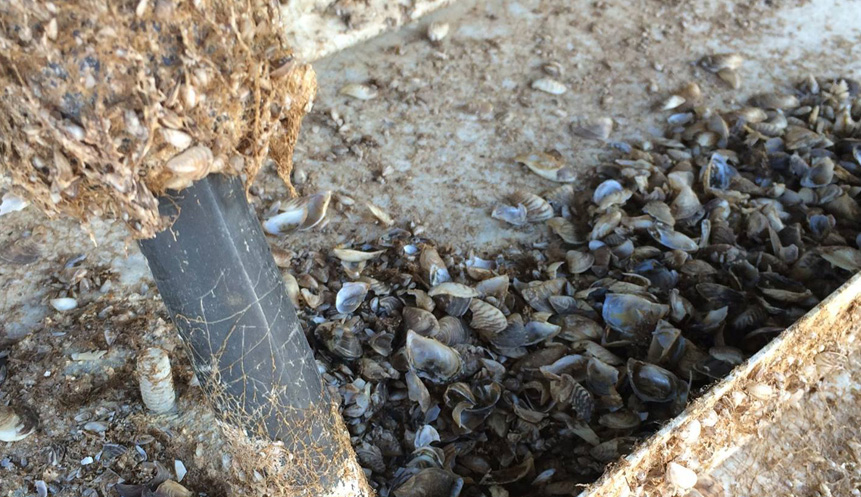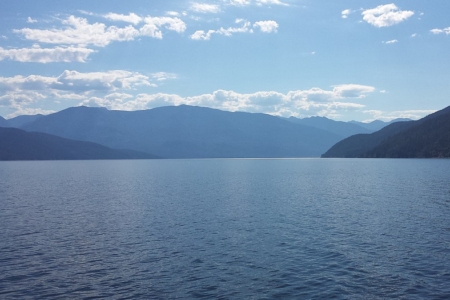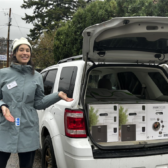Control, management of invasive species in region urged by CKISS
This isn’t your typical mussel beach.
One of the greatest current threats to the region’s watersheds and beaches is the Zebra and Quagga mussels, according to the Central Kootenay Invasive Species Society (CKISS).
The mussels — only the size of a fingernail — are being monitored in approximately 750 lakes throughout the West Kootenay and across North America, said CKISS development coordinator Laurie Carr in a recent presentation to the Regional District of Central Kootenay board of directors.
Primarily inhabiting rock areas, the mussels infiltrate infrastructure around lake edges, connecting to many different things and causing a negative effect with a damage repair bill in millions of dollars, she said.
The trend and the spread of mussels and other invasive species can be stopped, Carr said, with local governments acting to collaborate with CKISS and to enforce the Weed Control Act, Controlled Alien Species regulations and adopt regional bylaws to help get rid of invasive species.
Carr spoke to the board regarding the state of invasive species in the RDCK and CKISS initiatives to protect the region’s ecosystems and communities by preventing and reducing harmful impacts of invasive species.
There is some action being taken on halting the mussels’ advancement, with the federal government taking on a greater role. Carr said the Aquatic Invasive Species Regulations under the Fisheries Act were not adequately being enforced and measures were not implemented to prevent aquatic invasive species.
In B.C., the provincial government has a Mussel Defense program and there are inspection stations throughout the region so as to not transport the mussels from infected waters to uninfected ones.
Carr indicated that it costs “less to prevent the introduction of aquatic invasive species than to delay action and manage them once they are established.”
In total there are 97 other invasive species within the region and they have entrenched themselves. Carr explained that the species such as knotweed have become resilient and grow in between the cracks of infrastructure and can only be killed by herbicide.
In addition, invasive species adapt quicker to climate change, she added, meaning they are beginning to supplant native species because they do not adapt as quickly.
She noted that the Regional District of East Kootenay has a large invasive species program and receives funding from the Ministry of Forests, Lands and Resource Operation.
But only one per cent of CKISS’s funding comes from local government, Carr said, with the province, federal Crown and private corporations contributing around one third each.
CKISS is a “network of partners collaborating to minimize the impacts of invasive species on the ecosystems, communities, and economy” of the Regional District of Central Kootenay and the Regional District of Kootenay Boundary areas A and B.
Set up as a non-profit society, CKISS was formed by a group of residents and company and agency representatives in 2005 toward establishing new approaches to invasive species management.
More information on CKISS can be found at ckiss.ca.
Directing the directives
The purposes of the society within the geographic area of the Regional District of the Central Kootenay and areas A and B of the Regional District of the Kootenay Boundary, are to:
- raise awareness and educate the public, government agencies and other land managers about invasive species and their impacts in the area;
- prevent the further introduction and spread of invasive species in the area through education and awareness, early detection and control and coordinated integrated weed management efforts;
- promote coordinated and collaborative management of invasive species between agencies and land occupiers;
- work towards the control and containment of highly invasive non-native species; and
- provide a conduit for information and a source of expertise on invasive species.
— Source: ckiss.ca

























